Directions (1-5): An exam consists of 100 questions among 3 sections i.e. A, B and C. Section C have 32 questions and section A and B have equal number of questions. For each correct answer a student is awarded 3 marks and 1 mark is deducted for every wrong answer. Each section has 3 questions for which there is no negative marking on wrong attempt and 0.50 marks are deducted for every unattempted question.
Amar and Prem appeared for same exam, Amar attempted total 75 questions, while Prem attempted 80% of total questions attempted by Amar and 90% of his questions were correct. Both of them attempted all the question which do not have negative marking.
Q1. What is the smallest range of marks obtained by Amar, if 80% of his attempted questions were correct?
(a) 165-174
(b) 165-174
(c) 152.5-161.5
(d) 165-180
(e) 155-165
Q2. If only 3 non-negative marking questions out of 9 were wrong for Prem. Find the score of Prem.
(a) 122
(b) 102
(c) 159
(d) 139
(e) None of these
Q3. Prem attempted all the questions of section A, which were all correct and 50% of questions section C in which 6 were incorrect carrying negative marking. Find the difference between his score from section C and section B.
(a) 03
(b) 02
(c) 14
(d) 06
(e) None of these
Q4. All the non-negative marking questions were correct for Amar and only non-negative marking questions were wrong for Prem. What is the difference between their score, If 80% of questions attempted by Amar were correct.
(a) 10.5
(b) 16.5
(c) 54.5
(d) 36.5
(e) 17.5
Q5. If Amar scored 108.5 and 5 of his non-negative marking questions were correct. What is the total number of his correct questions?
(a) 42
(b) 53
(c) 47
(d) 49
(e) None of these
Directions (6-10): A new party XYZ, participated in election in 5 constituencies (A, B, C, D & E). Pie chart shows % distribution of party’s total votes scored by its 5 candidates and line graph shows, % of votes scored by winner candidates out of total votes polled in these 5 constituencies.
Note: All the votes must be calculated in nearest hundreds.
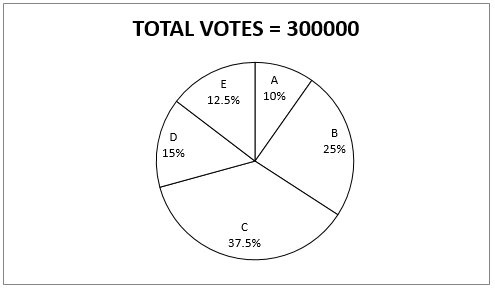
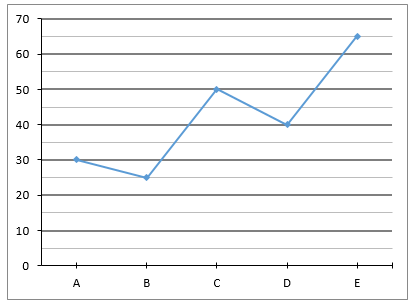 Q6. Candidate of party XYZ is winner from constituency B and defeated runner-up candidate by 7000 votes. None of the candidates from this constituency obtained vote less than 12000, then calculate maximum possible number of candidates from constituency B.
Q6. Candidate of party XYZ is winner from constituency B and defeated runner-up candidate by 7000 votes. None of the candidates from this constituency obtained vote less than 12000, then calculate maximum possible number of candidates from constituency B.
(a) 6
(b) 7
(c) 15
(d) 13
(e) can’t be determined
Q7. Party XYZ wins from constituency C. In constituency E total votes polled are 45000 less than that of constituency C. Find from how many votes the candidate of party XYZ lost in constituency E?
(a) 79500
(b) 91500
(c) 26500
(d) 27000
(e) 0
Q8. Out of constituency A and D, one of the seats was won by party XYZ. In lost constituency their candidate was runner up by 15000 votes. Find maximum possible difference between total votes polled in both of these constituencies.
(a) 50000
(b) 37500
(c) 25000
(d) either (a) or (b)
(e) either (b) or (c)
Q9. In constituencies A & E, both candidates of party XYZ are runner up, and lost by same number of votes. If the votes polled in E is 180000, find approximate number of votes polled in constituency A.
(a) 350000
(b) 365000
(c) 180000
(d) 100000
(e) None of these
Q10. Which of the following condition is never possible?
(i) constituency B and C have equal number of votes polled given that party wins from C.
(ii) candidate of party XYZ lost by 28000 voters from constituency E.
(iii) constituency A and B have equal number of votes polled.
(iv) winner candidate of constituencies B and D got equal number of votes.
(a) only (i)
(b) Only (i) and (iii)
(c) (i), (ii) and (iv)
(d) (i) and (ii)
(e) All of these are possible
Solutions
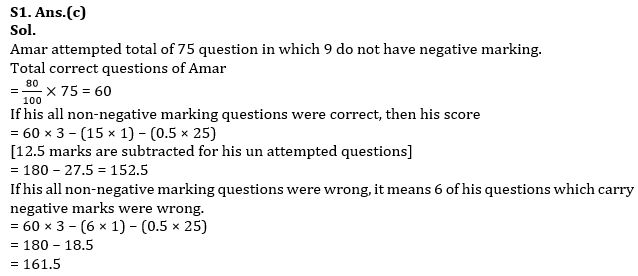
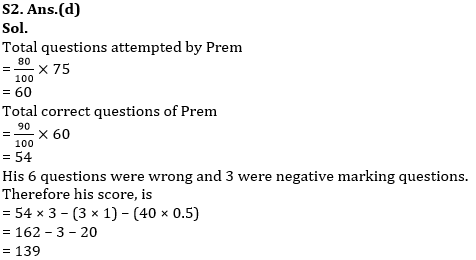
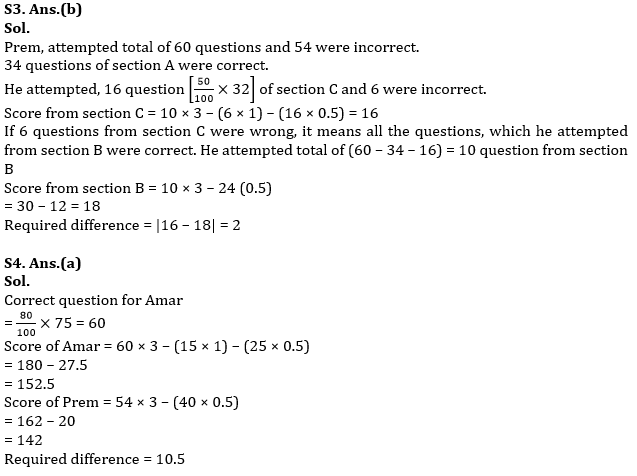
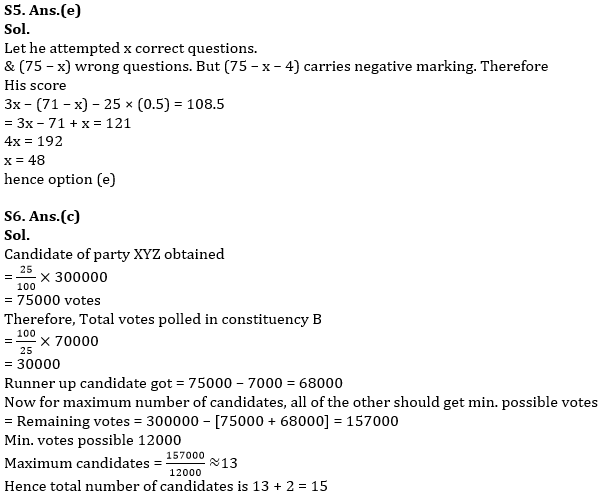
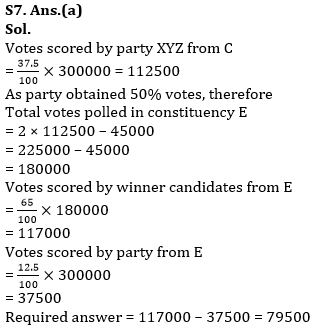
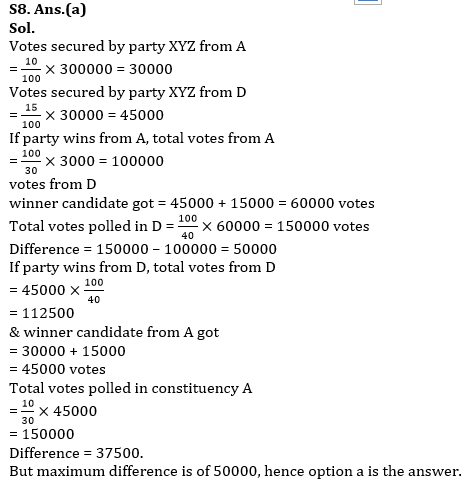
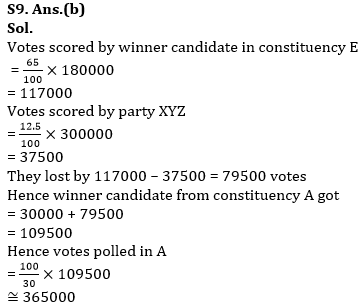
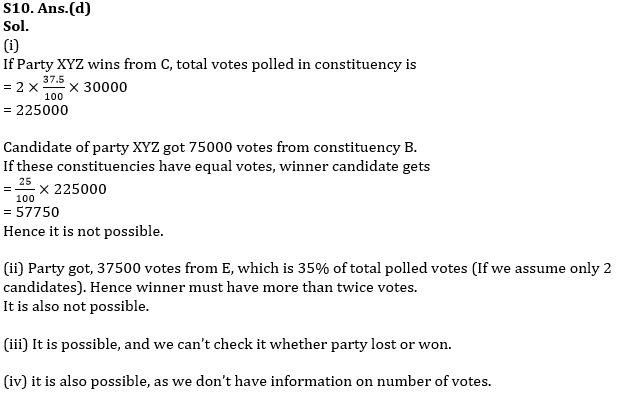
Click Here to Register for Bank Exams 2022 Preparation Material



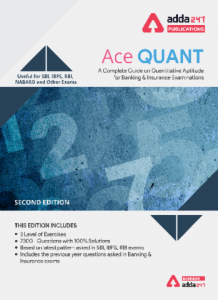

 Data Interpretation Questions for SBI PO...
Data Interpretation Questions for SBI PO...
 Data Interpretation Questions For Bank E...
Data Interpretation Questions For Bank E...
 Quantitative Aptitude Quiz For Bank Main...
Quantitative Aptitude Quiz For Bank Main...




